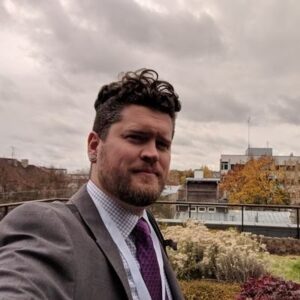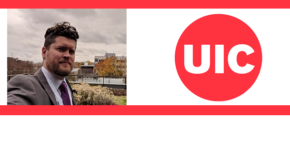 On Wiki Education Week: Not all groups have the same representation on Wikipedia.
On Wiki Education Week: Not all groups have the same representation on Wikipedia.
Zachary McDowell, assistant professor in the department of communication at the University of Illinois at Chicago, discusses one example.
Zachary J. McDowell is an Assistant Professor in the Department of Communication at the University of Illinois, Chicago. His research focuses on access and advocacy in digitally mediated peer production spaces. In particular, Zach’s research focuses on digital literacy, self efficacy, and how digitally mediated tools, particularly Wikipedia, shape these areas of inquiry.
Wikipedia and the Representation of Reality
Wikipedia is great for learning lots of things in and out of the classroom – not only about the topics at hand, but also editing Wikipedia helps to teach about epistemology, how knowledge is constructed, the nature of information, and information representation.
Wikipedia is immense – it is the largest repository of knowledge ever constructed. It consists of over 55 million pages and over six million articles in the English Wikipedia. However, Wikipedia is always changing, growing, and, by its nature, will never be complete. Representation matters, and continues to matter, especially when Wikipedia serves up over 18 billion page views per month. Wikipedia has long struggled with knowledge gaps, both in in what knowledge gets represented and how it gets represented. Because of this, it is imperative that we understand how Wikipedia both chooses what to include and how it covers various topics.
One glaring example of this is in biographies of Women, which represents only 19% of biographies on Wikipedia. However, this is a massive increase since in 2014 women comprised only 15% of biographies on Wikipedia. When we recognize and understand these gaps, we can do something about it. And teaching with Wikipedia can help here.
Students know the world is messy, unfair, and filled with a myriad of issues – but they often don’t know why, how it works, or how to help – and they care about making the world a better place. Teaching with Wikipedia not only helps to teach students about complex systemic issues surrounding knowledge gaps, but also provides space for them to help bridge and fill these gaps. This not only helps to improve Wikipedia but also allows a space for students to recognize they can make a difference in representation, which gives them great pride and a purpose beyond just writing a paper.
Read More:

Comments
5 responses to “Zachary McDowell, University of Illinois at Chicago – Wikipedia and the Representation of Reality”